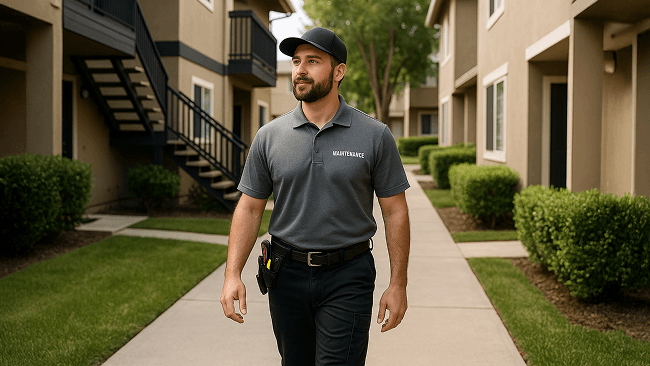Deescalation
Let's talk about disgruntled or upset residents. It happens to all of us from time to time for whatever reason. Justified or not, our residents will end up saying some things that really aren't that respectful, or they may use a tone of voice that is accusatory or angry first for us as maintenance technicians.
Remember. They're entitled to their feelings. That's allowed, they can get angry and mad and upset. What can't happen is they cannot physically take it out on you and me. So first, before you even talk about how to, uh, deal with this as a situation, if you at any point in time, feel in danger, you are entitled to your feelings as well.
Leave, get outta the situation. Leave it right then and there. You are more valuable to yourself, to your property, to your employer, and to your family than any possibility of putting yourself and staying in a dangerous situation. Leave dealing with a challenging resident, uh, can be a problematic response.
First again, remember, they're entitled to their feelings. Stop for just a moment and be aware of perception. If your resident is yelling and angry and upset about a situation, don't escalate with them. A natural response is to try and match them in volume. Actually, studies show that it is far more effective to do the opposite.
The louder that someone who's upset at you gets the quieter and the more subdued your responses should be. Now, I know this is not an easy thing to ask, but it is effective. Second of all. If a resident is yelling and screaming and cussing and saying, just disrespectful, things keep in mind it's not personal.
They're upset about a situation, and you or I just happen to be the first place where they can begin to take it out or try and get some response, and for whatever reason, our resident has come into the belief that the best way to get a response or correction is by. Getting loud. If again, you begin to feel threatened or in danger, leave If you don't feel threatened or in danger.
Let the venting happen. Let it pass you. Don't internalize it. Don't take it personal. At some point, as long as your job is to attempt to come to some solution, even if you can't provide that solution, interrupt them peacefully, quietly, calmly, and ask, what are you expecting out of this exchange? What can I do?
How can I fix it? How can I solve it? Can we take a look at what is going on? Can we pull this apart? Where is it found? Can you provide a little bit more specifics? All of these in a calm, peaceful voice are excellent tactics to use. Remember, there is a reason, either real or perceived, that your resident feels justified in being upset.
We all have moments in life where we're upset. Keep in mind that they're allowed to have those feelings in the same way. When you were frustrated, you had those feelings. The most productive response is measured, calm and continual. Meaning always ask to take it back and identify the source and then do whatever we can as service technicians to solve the problems at the source.
Remember, that may mean that we actually have to hand that off to our office.




